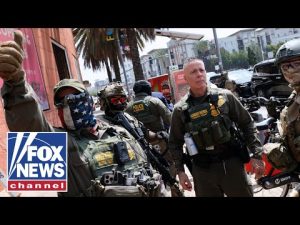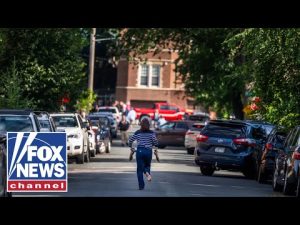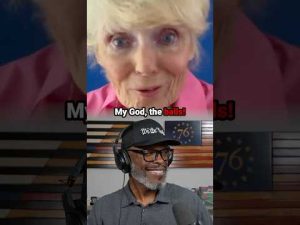In the bustling corridors of conservative commentary, one finds themselves navigating a maze of current events, political blunders, and, let’s face it, some perplexing moments of human behavior. The recent events in Minneapolis bring forward a troubling scenario as they lay bare not just a tragic loss of life but political tenacity leaning into the bizarre. The tale of Robin Westman, the Minneapolis shooter at Annunciation Catholic School, has captivated attention—not just for the harrowing act but also for the tangled narrative that followed.
In a world where the left often champions the notion of ‘believe the victims,’ it seems the political compass falters when the story doesn’t align perfectly with their narrative. Westman’s tragic journey underscored deep self-conflict, gnawing regret about life choices, and, ultimately, a horrific decision. The contents of his manifesto reveal a mind wrestling with identity and ideology—messages scribbled in a mix of English and an Eastern European language, hint at a storm of discontent and demonic allegory. Yet, as expected, the media’s silence on the true nature of the shooter was louder than the speeches of those demanding more gun control and less prayer.
Now, what spiraled out next was somewhat predictable. Public figures on the progressive front were quick to sidestep the messy details and pivoted to their trusted rhetoric. Thoughts and prayers, they claimed, were redundant. Political leaders critiqued prayer as a hollow token. It’s comical, if not infuriating, to see the left so disparaging of spiritual expressions in moments of grief, once again mocking conservatives with their penchant for prayer, despite standing as powerful emotional support for millions.
Instead of focusing on the roots of these violent acts or the confessions of a troubled soul, it seems easier for some leaders to veer into familiar territories of gun control debates without acknowledging their position of power and their inaction on implementing security in vulnerable sites. Yes, Minneapolis schools were left unfortified, and now, the aftermath speaks for itself. The debacle following this tragedy points a glaring finger at the local administration’s funding choices, prioritizing activism while side-stepping practical safety measures.
All the while, the conservative camp remains firm in their belief in prayer’s ability to provide solace and galvanize positive action. They emphasize that prayer, in combination with pragmatism, creates a balance between spiritual comfort and decisive action. They argue that disregarding prayer reflects a fundamental misunderstanding of its role—not as a replacement for action but as its accompaniment. The response from conservatives pushes back against the left’s narrative, defending prayer with the belief that spiritual and legislative action need not be mutually exclusive.
In the larger narrative of America’s cultural and political arenas, the debacle in Minneapolis is another chapter where the left’s dance around uncomfortable details causes more head-scratching than enlightenment. Perhaps, the moral of the story is not just about the politics of guns or prayer but about the failure of political discourse to rise above partisan lines to address the true complexities of tragedies such as this one.







